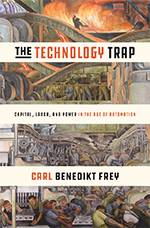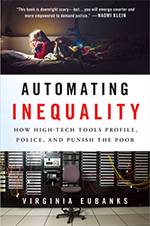OnPoint Subscriber Exclusive

Sami Mahroum
Says More…
This week, PS talks with Sami Mahroum, a professor at the Free University of Brussels and a senior fellow at the Issam Fares Institute at the American University of Beirut.
Project Syndicate: In April, you discussed the psychological dimension of social-distancing rules, calling the unprecedented COVID-19 lockdowns “a major test of the extent to which entire populations can adhere to strict government measures.” Why have Americans done particularly poorly on this test, and what approaches are best suited to help the US contain the virus?
Sami Mahroum: Americans have always had a complicated relationship with government, which they tend to view as a bureaucracy that should do as they say, not tell them what to do. By their logic, government is there to serve the people, not the way around. If the government demands that the people “serve” it by complying with particular rules, it is impinging on their freedom. Since “freedom” from tutelage and official constraint is widely regarded as the country’s raison d’être, even easy-to-follow public-health regulations are anathema to many Americans.
During the COVID-19 crisis, the US government might be more successful with a softer approach that nudges people into altering their behavior by appealing to their sense of solidarity and compassion. Americans also like acts of heroism, so portraying, say, mask wearing as an honorable sacrifice – rather than a display of weakness, as many view it now – could help.
Mahroum recommends
We ask all our Say More contributors to tell our readers about a few books that have impressed them recently. Here are Mahroum's picks:
-

The Technology Trap: Capital, Labor, and Power in the Age of Automation
by Carl Benedikt Frey
I was hugely impressed by this well-researched book, which provides a fascinating historical analysis of the interplay between government policy and technical change around the world. At the same time, it provides clues about how similar dynamics may shape the ongoing wave of automation, and what that might mean for wealth distribution within and among countries.
-

Automating Inequality: How High-Tech Tools Profile, Police, and Punish the Poor
by Virginia Eubanks
Another well-researched work, this book describes countless cases in which the use of AI to make human-relevant decisions has replicated and reinforced systemic injustice toward disadvantaged communities. Thanks to an ethnographic approach, Eubanks is able to expose many hidden – and destructive – nuances of how algorithms work, ultimately showing that they can never replace human empathy and discretion.
-

A Modern Contagion: Imperialism and Public Health in Iran’s Age of Cholera
by Amir A. Afkhami
Drawing on archival documents, Afkhami traces Iran’s experience with a protracted cholera pandemic, which began in the early nineteenth century and lasted until World War I. Two things in particular grabbed my attention. First, many clergy at the time responded to cholera outbreaks much like some religious leaders today have responded to the COVID-19 crisis, placing theological dogma ahead of scientific advice. Second, the cholera pandemic gave rise to Iran’s antecedent disease-control agencies and medical-research institutions. This made me wonder what new institutions will emerge after the current pandemic, at the national and global levels.
From the PS Archive
From 2018
In this PS Long Read, Mahroum warns that the hasty deployment of AI applications in medicine could backfire, at the cost of patients and providers alike. Read more.
From 2017
Mahroum uses data on patent filings to show how US President Donald Trump’s attempts to keep out Middle-Eastern immigrants undermines US innovation. Read more.
Around the web
In a recent commentary for The National (UAE), Mahroum shows what COVID-19 stimulus packages are missing. Read the article.
In a recent blog post for the Issam Fares Institute for Public Policy and International Affairs, Mahroum argues that COVID-19 should not be treated as force majeure, because it is clearly the result of governmental failures. Read the commentary.